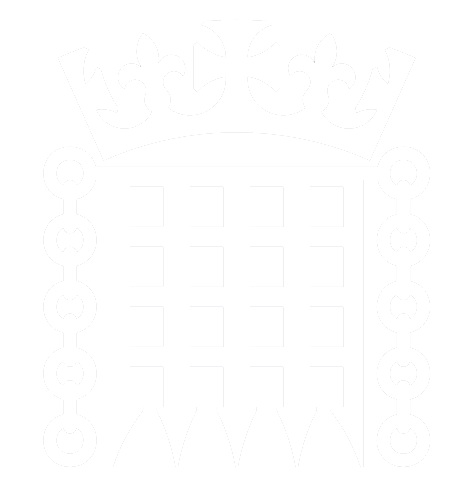Today I was in Parliament to welcome the first Conservative Budget in 18 years. This was a bold budget for my constituents, delivering on our election promises introducing measures to support workers, businesses, public services, taxpayers and savers while taking the responsible decisions to complete the job of sorting out the national finances.
The Budget introduces fair and pragmatic measures to tackle the deficit, whilst our economic growth is strong. It also ensures those with the broadest shoulders carry the greatest burden, whilst continuing to devote a greater share of state support to the most vulnerable.
Making Work Pay –
National Living Wage
Today’s Budget announced a new National Living Wage to support those on the lowest pay. This will see a Living Wage of £7.20 introduced from next April rising to £9 by 2020. This will be compulsory and working people aged 25 and over will receive it. Two and a half million people will get a direct pay rise as a result of this tackling the scourge of low pay.
Jobs tax and Corporation Tax reductions
The estimated cost of the National Living Wage to business will amount to just 1% of corporate profits and to offset this the Chancellor announced he will corporation tax to 18% by 2020. To help small firms the Chancellor announced that he will go further now and cut their National Insurance Contributions. From 2016 the Employment Allowance, will now be increased by 50% to £3,000, which means a firm will be able to employ 4 people full time on the new National Living Wage and pay no National Insurance at all.
Increasing the Personal Allowance
The tax-free Personal Allowance – the amount people earn before they have to start paying Income Tax – will increase to £11,000 from next April with a view to increasing to £12,500 during this Parliament. This increase will benefit 40,495 people in Amber Valley.
The amount people will have to earn before they pay the higher rate of tax at 40% will increase to £43,000 in 2016-17 with a commitment to increasing this to £50,000.
Training Young People
To support our young people in getting the training they need to get a job, under the last Government we doubled the number of apprenticeships to 2 million, however in this Budget, we’re committed to creating 3 million more. We will Introduce an apprenticeship levy on all large firms, which will ensure high quality and that firms that offer apprenticeships can get more back than they put in. This will ensure all large employers are contributing to training the next generation.
Welfare Reform
The Chancellor also announced essential welfare reforms to that make the system fairer for taxpayers who pay for it, while continuing to support the most vulnerable.
In Britain we spend more on family benefits than Germany, France or Sweden, accounting for 13% of all public spending. Decisions to address this are extremely difficult, however, I welcome the commitment to protecting the elderly, vulnerable and disabled.
However, those who can work will be expected to look for work and take it when it is offered. Changes to welfare are detailed below:
- The household benefit cap will be reduced to £20,000 (£23,000 in London) ensuring no household can received more in benefits than those at work.
- The automatic entitlement to housing benefit for 18-21 year olds will be scrapped. There will be exceptions made for vulnerable people and other hard cases, but young people in the benefit system should face the same choices as other young people who go out to work and cannot yet afford to leave home.
- For those aged 18-21, the Chancellor also announced a new Youth Obligation that says they must either earn or learn. Removing the damaging process of our young people leaving education and straight into a life on benefits
- Working-age benefits, including tax credits and Local Housing Allowance, will be frozen for 4 years from 2016-17 (this doesn’t include Maternity Allowance, maternity pay, paternity pay and sick pay).
- Support through Child Tax Credit will be limited to 2 children for children born from April 2017
Defence Spending
The Chancellor also committed to meeting the NATO pledge to spend 2% of our national income on defence. Not just this year, but every year of this decade.
Tackling Tax Avoidance
Analysis produced today shows that the richest are paying a greater share of tax than they were at the start of the last parliament – those with the broadest shoulders are carrying the biggest burden. However, we have progress to make on ensuring everyone pays their share and contributes properly through their taxes.
- The Chancellor announced plans to abolish the unfairness included in the non-domicile tax regime. Non-domiciled individuals (non-doms) live in the UK but consider their permanent home to be elsewhere. The UK rules allow non-doms to pay UK tax on their offshore income only when they bring it into the UK.
- Permanent non-dom status will be abolished from April 2017. From that date, anyone who’s been resident in the UK for 15 of the past 20 years will be considered UK-domiciled for tax purposes.
- The Chancellor announced a funding boost, increasing HMRC’s capacity with £800 million of investment to go after tax fraud, offshore trusts and the businesses of the hidden economy, tripling the number of wealthy evaders they pursue for prosecution – raising £7.2 billion in extra tax.
- Introduce tough new penalties to our General Anti-Abuse Rule, and name and shame serial users of failed tax avoidance schemes.
Taxes on Motorists
The Road Fund Licence will be revised to make it fairer and sustainable and the money brought in from road tax in England will be spent on improving England’s roads from 2020. These changes will ensure that in future those buying the most expensive new cars will not pay less than those driving cheaper ones. There will be no fuel duty rise this year.
Savers
The Chancellor also unveiled changes to taxation of dividends by introducing a new £5,000 tax-free dividend allowance for all taxpayers from April 2016. Tax rates on dividend income will be increased. This will encourage holding shares but will address issues of people setting up personal service companies to avoid tax.
This simpler system will mean that only those with significant dividend income will pay more tax. Investors with modest income from shares will see either a tax cut or no change in the amount of tax they owe.
The Chancellor also announced rules to restrict pensions tax relief for the very highest earners and a consultation on reforming the pensions tax system.
Inheritance Tax
As promised in our manifesto, the family home, worth up to £1 million for a couple, will now be exempt from Inheritance Tax.

